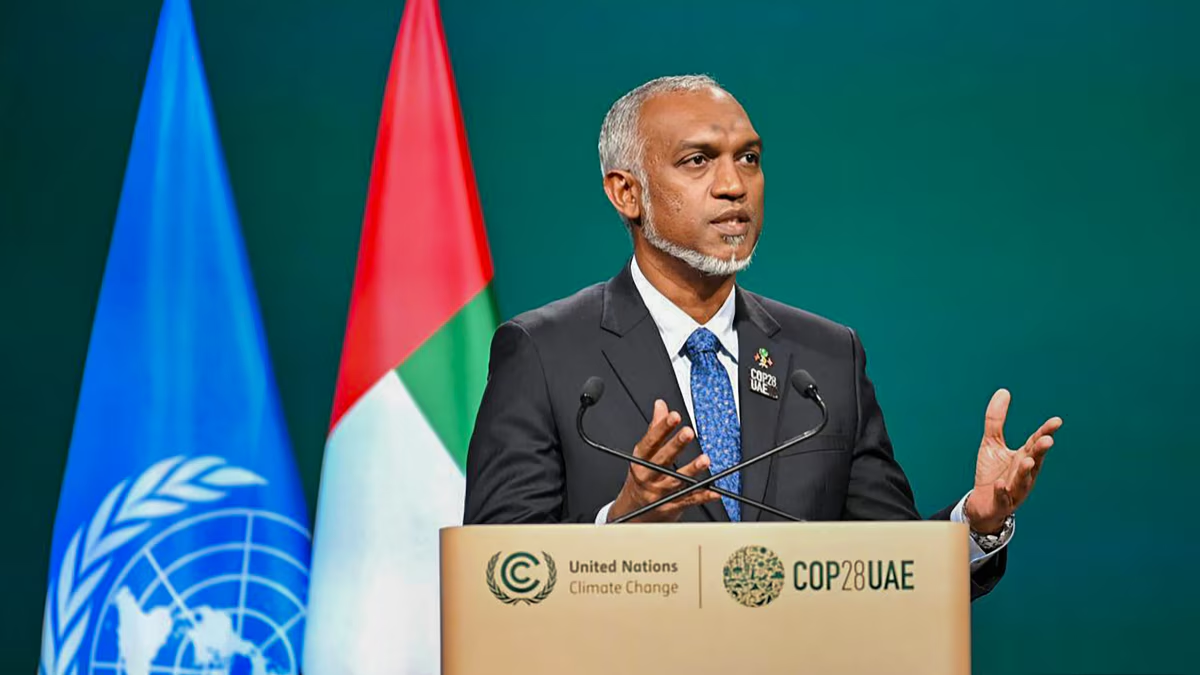President Muizzu’s Party Wins Maldives Elections: Implications for India
New Delhi: President Mohamed Muizzu’s party, the People’s National Congress (PNC), has achieved a decisive victory in the Maldives’ parliamentary elections held yesterday, potentially solidifying his pro-China stance. The PNC, which contested 90 out of 93 seats in the Maldivian parliament Majlis, has secured 66 seats out of the 86 declared results, granting them a significant two-thirds majority in the House.
This outcome will empower President Muizzu, who is perceived as anti-India, to advance his policies through parliament. The seat distribution is worrisome for New Delhi, which has been observing Male’s shift towards Beijing since Muizzu’s election last year.
Significance of the Outcome
The Majlis holds oversight powers over the Maldivian executive and can impede presidential decisions. Before this election, the PNC was part of a minority alliance in the House. Despite being president, Muizzu lacked the political strength to implement policies.
Previously, the Majlis was dominated by the Maldivian Democratic Party (MDP), led by Muizzu’s pro-India predecessor Ibrahim Mohamed Solih, with 41 members. This time, the MDP is facing a significant defeat, securing wins in only a dozen seats, as reported by the news agency AFP.
Previously, Muizzu’s plans faced opposition in the MDP-dominated House, with critics publicly condemning his anti-India stance. A senior aide of Muizzu told AFP earlier, “He (Muizzu) came to power promising to repatriate Indian troops, and he is actively working towards that. However, the parliament has not been cooperative.” This election result changes that dynamic.
This election served as a test for Muizzu’s ambitions to enhance economic collaboration with China. Since assuming office, the president has awarded substantial infrastructure contracts to Chinese state-owned firms. His party’s electoral success is expected to remove most obstacles in this regard.
Male’s Growing Alignment with Beijing
Since his election last year, Muizzu has intensified the island nation’s engagement with Beijing, a development that has concerned New Delhi. Shortly after his election, Muizzu visited Beijing and met with Chinese President Xi Jinping. Upon returning, he stated, “We may be small, but this doesn’t give others the right to bully us.” Although he did not specify any country, this remark was interpreted as directed towards India.
President Muizzu also advocated for the departure of approximately 80 Indian soldiers stationed on the island for humanitarian purposes.
However, last month, Muizzu appeared to extend an olive branch by acknowledging India’s financial assistance to Male and affirming that “India will remain the Maldives’ closest ally.” At the end of last year, the Maldives owed India around $400.9 million.
India has thus far adopted a restrained approach and downplayed strained relations. When asked about New Delhi-Male relations following Muizzu’s election, External Affairs Minister Dr. S Jaishankar remarked, “Neighbors are interdependent. History and geography exert strong influences. There’s no escaping that reality.”
For China, expanding its presence in the strategically significant Maldives is crucial for its Indian Ocean strategy, especially at a time when the region’s geopolitical importance has grown significantly.






